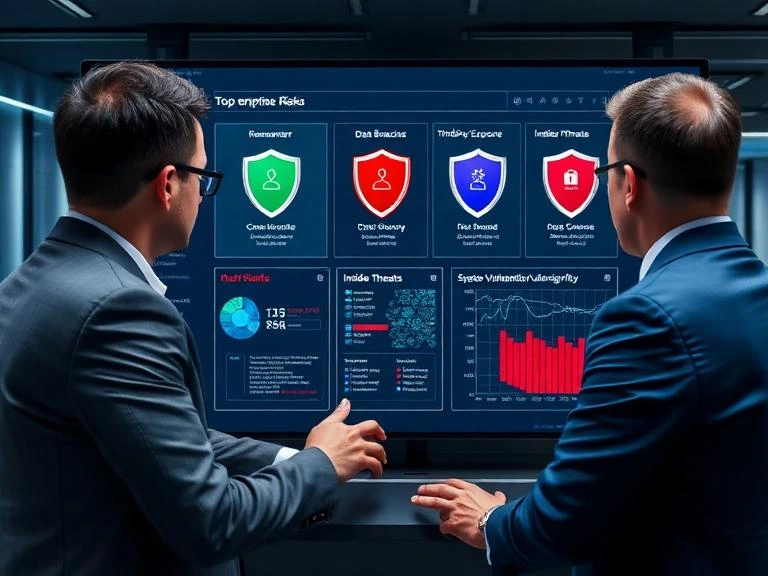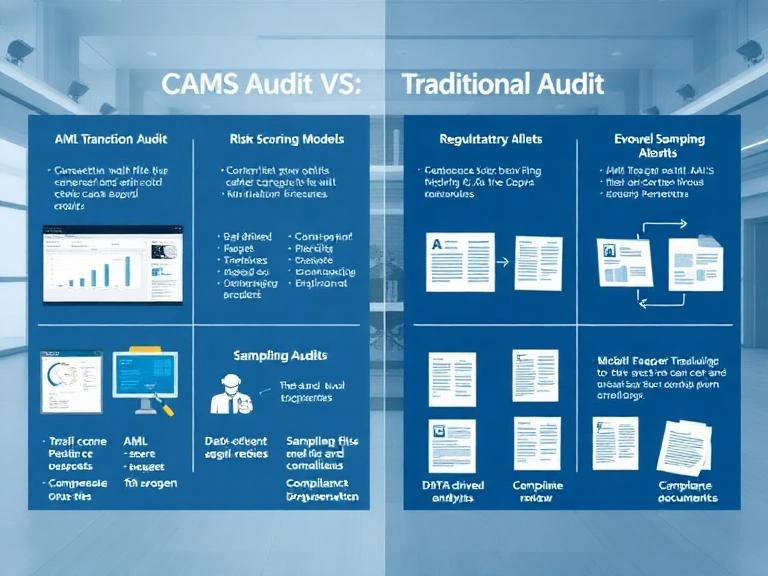Internal auditing is an independent, objective assurance and consulting activity designed to add value and improve an organization’s operations. It brings a systematic, disciplined approach to evaluate and enhance the effectiveness of risk management, control, and governance processes. Internal auditors assess various aspects, including emerging technologies, global issues, ethics, quality, economy, and efficiency. Their goal is to ensure that internal controls are adequate to mitigate risks and that governance processes are effective and efficient. In summary, internal audit plays a crucial role in helping organizations achieve their objectives by ensuring effective risk management, strong controls, and sound governance processes.

Cybersecurity Risks - The Top 5 Enterprise Threats to Watch Out For
In today's digital landscape, cybersecurity risks have emerged as a critical concern for enterprises worldwide. When considering enterprise risk examples, cybersecurity threats have become especially significant. As organizations increasingly rely on technology…

10 Enterprise Risks Your Organization Isnt Prepared For - A Guide for Senior Auditors and Risk Managers
As senior auditors and risk managers, you understand the importance of identifying and mitigating risks within an organization. In today's fast-paced and ever-changing world, organizations face numerous risks that can significantly impact their operations, reputation, and…

The Evolution of Change Assurance - How Technology Is Revolutionizing the Audit Process
As internal auditors, we are tasked with ensuring that our organizations' controls and processes are effective in achieving their objectives. One critical aspect of this responsibility is change assurance – the process of…

Best Practices for Conducting Change Assurance Audits in a Hybrid Work Environment
Change assurance audits are a critical component of any organization's risk management and internal audit strategy. As organizations undergo significant changes—such as mergers, acquisitions, process improvements, or system implementations—it is vital to…

5 Ways CAMS Audit Can Enhance Your Risk Management Strategy
In today's complex business environment, effective risk management is paramount for organizations aiming to safeguard their assets and reputation. One powerful tool that Chief Audit Executives (CAEs) and Risk Managers…

CAMS Audit vs. Traditional Audits - Understanding the Key Differences
As internal auditing evolves to meet the demands of modern businesses, the Certified Anti-Money Laundering Specialist (CAMS) audit has emerged as a crucial methodology. This blog will introduce the CAMS audit, its relevance in internal…

Harnessing Technology for Effective Business Continuity Risk Assessments
Business continuity risk assessments are vital for ensuring organizational resilience in today's unpredictable environment. This systematic process identifies potential disruptions that could hinder an organization's operations, evaluating risks from natural disasters to…

The Evolution of CAMS Audit - How Technology is Revolutionizing Compliance Management
The Certified Anti-Money Laundering Specialist (CAMS) audit has become an essential component of internal audit practices worldwide. As a crucial tool for ensuring compliance with anti-money laundering (AML) regulations, CAMS audit plays a…

Compliance with Industry Standards - A Comprehensive Guide to Business Continuity Risk Assessments
Business continuity risk assessments are critical for organizations aiming to maintain operational resilience amidst disruptions. This guide provides internal auditors and risk managers with insights into the importance of these assessments and…

10 Essential Questions for Conducting a Business Continuity Risk Assessment
In today's unpredictable business environment, a robust business continuity risk assessment is vital for organizations aiming to maintain operational resilience. This process not only identifies potential disruptions but also helps in developing effective strategies…









